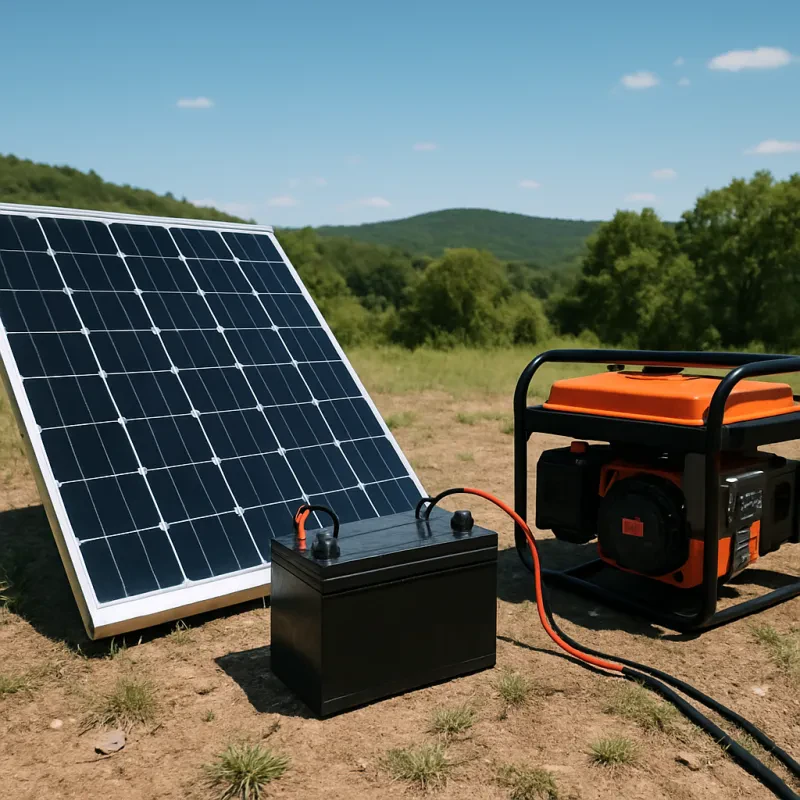In today's uncertain times, it has become increasingly vital to be prepared for unexpected events. The global pandemic, natural disasters, economic instability, and political unrest have all underscored the importance of prepping. Prepping refers to taking proactive measures to ensure the physical, mental, and emotional well-being of oneself and loved ones in the face of adversity. By being adequately prepared, individuals can mitigate risks, cope with challenges, and maintain a greater sense of security.
One of the key aspects of prepping is having a well-stocked emergency supply kit. This kit should include essential items such as non-perishable food, clean water, medicines, first aid supplies, flashlights, batteries, and other necessary items that would support survival during emergencies. It is crucial to regularly check and replenish these supplies to ensure they are always up to date and readily available when needed.
Moreover, prepping involves developing practical skills that can prove invaluable during uncertain times. Learning first aid, basic self-defense techniques, wilderness survival skills, and how to start a fire are just a few examples of skills that can be extremely beneficial. By acquiring such skills, individuals become better equipped to handle emergencies, reduce risks, and adapt to challenging situations.
While prepping is often associated with extreme survival scenarios, it is equally applicable to everyday situations. Seemingly mundane events such as power outages, car breakdowns, or job loss can all disrupt our lives significantly. By taking the time to plan and prepare for these possibilities, we can function more confidently and efficiently, knowing we have taken steps to minimize potential harm and discomfort.
Navigating Uncertain Times: The Power of Prepping
As uncertainty continues to shape the world we live in, the importance of being prepared for unexpected events cannot be overstated. Whether it's a natural disaster, a global pandemic, or economic upheaval, being proactive and taking steps to ensure your safety and well-being is crucial. This is where the practice of prepping comes into play, allowing individuals and families to better navigate these uncertain times with a sense of security and resilience.
Prepping involves creating an emergency plan and stocking up on essential supplies that will sustain you during times of crisis. This can include food, water, medical supplies, and tools. By having these provisions readily available, you can minimize the impact of disruptions and ensure that you and your loved ones have the resources needed to endure and recover from any adversity that may come your way.
Moreover, prepping offers psychological benefits, reducing anxiety and increasing overall peace of mind. The knowledge that you are prepared for unexpected events can alleviate stress and allow you to face challenges head-on. Prepping empowers individuals to take control of their situations, providing a sense of self-reliance and diminishing the fear and uncertainty that often accompany times of crisis.
Why Prepping Matters: Ensuring Safety and Security
In today's world, the importance of being prepared for unforeseen events cannot be overstated. Whether it's natural disasters, political unrest, or global pandemics, the need to ensure the safety and security of ourselves and our loved ones is paramount. This is where prepping, or the act of preparing and stockpiling necessary supplies and developing contingency plans, becomes crucial.
Prepping allows individuals and families to have a sense of control amidst the uncertainties that we face. By having essential items such as food, water, medical supplies, and alternative sources of power, preppers are better equipped to withstand emergencies that may disrupt the normal functioning of society. Additionally, prepping fosters resilience and self-reliance, which are essential qualities in the face of adversity.
Furthermore, prepping goes beyond just physical supplies. It also involves honing skills, such as first aid training, communication techniques, and basic survival skills. These skills not only enhance personal safety but can also be invaluable in assisting others during times of crisis. Preppers understand that relying solely on external assistance may not always be possible or timely, and therefore take proactive measures to be self-sufficient.
While some may dismiss prepping as unnecessary or a symptom of fear, the reality is that unforeseen events can and do happen. The recent global health crisis has highlighted the vulnerability of our interconnected world. Prepping is not about succumbing to fear, but rather about embracing a proactive mindset that prioritizes the safety and well-being of ourselves and those around us. By taking steps to prepare for the unexpected, we can ensure a higher level of security and be better equipped to navigate through the uncertainties of today's world.
Emergencies Happen: The Vitality of Being Prepared
In an unpredictable world, emergencies can strike without warning, putting our lives and safety at risk. Whether it's natural disasters, pandemics, or social unrest, being prepared for these unexpected events is crucial. Prepping is the act of taking proactive measures to ensure you have the necessary resources and skills to survive and protect your loved ones in times of crisis. While it may seem overwhelming, preparing for emergencies can mean the difference between life and death.
One of the primary reasons prepping is vital today is the increasing uncertainty we face. With global climate change, political instability, and the ongoing COVID-19 pandemic, the future can be incredibly unpredictable. By taking prepping seriously and building an emergency plan, you are taking control of your own destiny. Ensuring you have essentials such as food, water, and medical supplies stockpiled will provide peace of mind and increase your chances of survival during tumultuous times.
Moreover, emergencies often lead to disruption in essential services and infrastructure. It's not uncommon for power grids to fail, communication channels to break down, or supplies to run scarce. By being prepared, you can minimize the impact of these disruptions on your daily life. Having alternative sources of energy, like solar panels or generators, and learning basic survival skills can make a significant difference in how well you fare during a crisis.
Finally, prepping promotes self-reliance and fosters a sense of responsibility. Instead of relying solely on external help, which may be limited during an emergency, prepping empowers individuals to take control of their own well-being. By becoming self-sufficient, you not only protect yourself and your loved ones but also lessen the strain on already overwhelmed emergency services and aid organizations. Through prepping, we can foster a resilient society better prepared to face the uncertainties of our fast-changing world.


